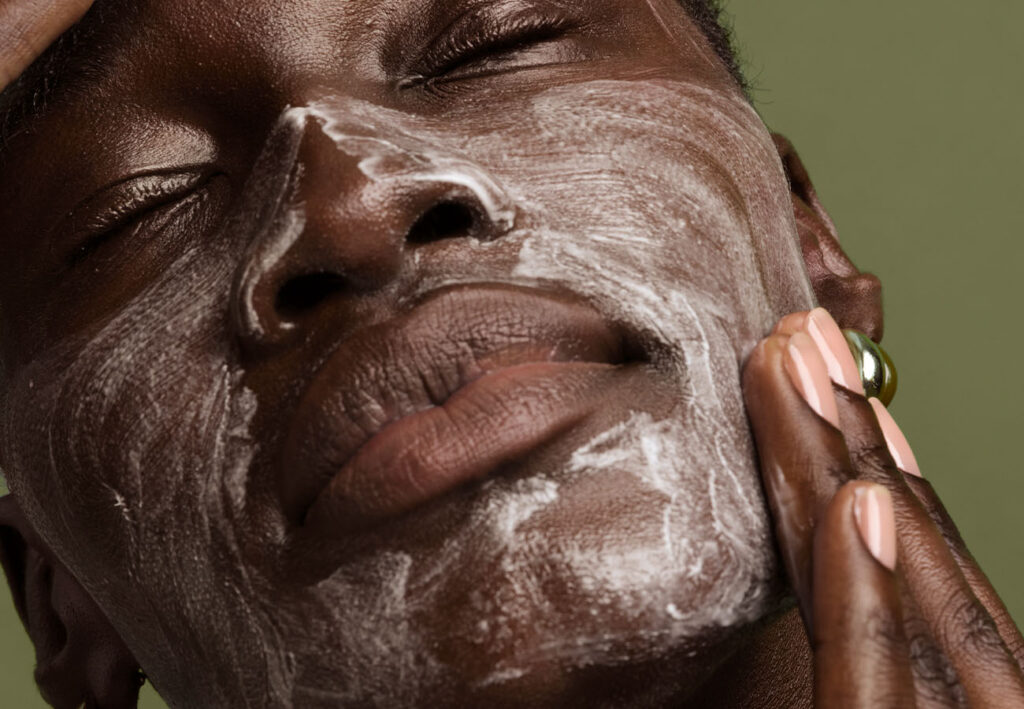Before we dive in, did you know that Prose now has personalized skincare to complement your clean routine? To find the best winter skincare (and beyond!) formula for you, take our skin consultation to get started.
Why you need to adjust your winter skincare routine
The reason you’re seeing changes in your skin during winter is of course due to harsher temps and wind, as well as reduced humidity. “More extreme weather conditions can exacerbate dryness, and skin sensitivities, and possibly induce redness, rashes, broken skin, and dermatitis,” Knight Fuchs says. Patients with rosacea and eczema as well as allergy-prone skin may be especially susceptible to wintertime skin issues. One way to help support your skin? Re-evaluate your products.
Look at your products and their ingredients
First, avoid the use of harsh soaps and instead use mild skin cleansers, like the Prose Custom Cleaner, which is customized for your skincare needs, including weather and environmental factors. Using products with skin-protecting ingredients such as fat-soluble vitamin C and vitamin E plus hyaluronic acid can help to lock in moisture. Exfoliating should be done with care (and maybe less frequently than in warmer months) to prevent irritating sensitive winter skin. Adding oatmeal and hyaluronic acid (break open a capsule and sprinkle the powder) to a warm bath also makes a great skin-softening treatment, Knight Fuchs says.
The best topical ingredients for improving winter skin hydration include polysaccharides like beta-glucan and hyaluronic acid, Knight Fuchs explains. Algae extracts, which can be found in the Prose Custom Moisturizer can be beneficial, too. You don’t need to go crazy though, if your current favorite skincare products are effective and beneficial, you might not need to totally clean out your cabinet.
“Stimulating ingredients like AHAs and retinol can be used as they can both stimulate the production of the skin’s natural moisture factors, but carefully, as they can be irritating and drying for dryer and sensitive skin types or when overused,” Knight Fuchs says.
In winter, your first instinct might be to reach for a soap, lotion or cream featuring petroleum jelly, lanolin, shea, or cocoa butter to relieve dry skin. However, Knight Fuchs says these ingredients should only be used in a pinch, as they can inhibit the production of the skin’s natural moisture factors and actually make dry skin problems worse in the long run. (If rashes, pain, or severe cracking occurs, you should consult with a derm.)
One product you should never skimp on even if the clouds are out: SPF. It’s important to protect the skin all year round. Topically, zinc-oxide based physical sunscreens can provide plenty of SPF benefits and help block both UVA and UVB solar rays.
7 tips for winterizing your routine
1. Eat foods that can help improve skin hydration (such as eggs, nuts, olives, avocados, fatty fish and bone broth)
2. Check your supplement routine: It may be beneficial to add vitamins A, E and D to your diet via foods or supplements (your doctor can help you with this)
3. Avoid processed foods
4. Stay hydrated
5. Lay off foods that cause digestive distress and correct digestive issues
6. Refresh your winter skincare routine: Using products with ingredients such as ceramides, vitamin E, and fatty Vitamin C (THDA), especially after washing and bathing/showering. Creating a Prose Custom Skincare Routine can help you target any skin concerns you may have based on your needs and your environment.
7. Take a moisturizing bath: Add colloidal oatmeal, hyaluronic acid powder and fatty vitamins (D,E, A, and fatty Vitamin C) to warm water and bathe
Always made to order. Never made to waste.
Exclusive Trial Offer Get 60% Off + Free Gift







